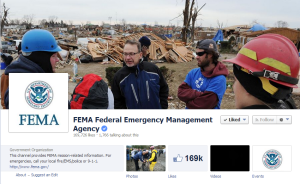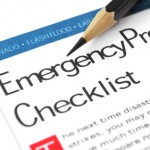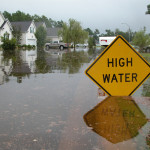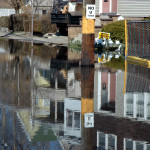Cashing In On Disaster
According to a 2010 Bureau of Labor Statistics report, Emergency management specialists earn a mean hourly wage of $27.36 per hour or $56,900.00 per year. The same study goes on to say that of the 13,060 folks in this growing field, many earn up to $90,340.00 per year.
“Emergency Management Specialists coordinate disaster response or crisis management activities, provide disaster preparedness training, and prepare emergency plans and procedures for natural (e.g., hurricanes, floods, earthquakes), wartime, or technological (e.g., nuclear power plant emergencies, hazardous materials spills) disasters or hostage situations” Source:Bureau of Labor Statistics
What is Emergency Management?
In a word, it’s all about coping. The emergency management degrees, courses, and certification

Emergency Management Specialist
you’ve taken up are distilled into this one reality—coping with dangers, coping with risks, and coping with consequences. If you’ve undergone training through enrolling in an emergency management course, you’ll realize that coping is a highly nuanced reality—it encompasses both the proactive and reactive phases of this interdisciplinary field. In the proactive phase of emergency management, there’s mitigation and preparedness—reducing the damage. In the reactive phase, there’s response and recovery—repairing the damage.
Emergency Management Defined
If you’ve ever reviewed for an emergency management certificate, you know that this field is involved in the protection of a group of people or communities from the aftermath of disasters, wars, and acts of violence and terrorism. To achieve this end, emergency management brings together expertise from many disciplines—law enforcement, military, scientific research, environmental science, governance, and so on.
For layman, they may understand emergency management as the basic search and rescue activity that comes after a disaster like the Japanese tsunami or the terror bombing in Bali. To the one who has obtained an emergency management certification, however, it’s a little more involved and complicated than that.
In emergency management, managers try to predict disasters by taking into account all kinds of hazards, threats, and risks arising from all quarters—people, environment, climate, etc.—that a particular community or group is vulnerable to and then putting in place mechanisms to address these threats.
The Four Phases of Emergency Management
Broken down into its minutiae, emergency management has four phases—something you’ll probably learn on the first day of your emergency management course: mitigation, preparedness, response, and recovery.
The proactive phases are the following:
- Mitigation. Basically, mitigation is focused on knowing what and where the risks and hazards are and avoiding them as much as possible. You can reduce the consequences of disaster by establishing structural (firming up buildings, dams, homes, and other edifices) and non-structural measures (involve knowing how to prevent brushfires or constructing homes away from known sinkholes areas).
- Preparedness. It’s all about being ready to deal with and manage a disaster or calamity while it’s happening. It’s about having the procedures and equipment in place, ready to respond the instant a catastrophe occurs. Rehearsing fire drills, and identifying evacuation centers and hurricane kits are just a small part of being prepared.
The reactive processes are the following:
- Response. Search and rescue efforts figure largely during or in the aftermath of a disaster (floods, earthquakes, terrorist attacks, etc.). There are other responses as well—providing basic human needs, medical assistance, and so on. The first responders are always the local authorities but depending on the scope of the calamity, national or international groups may come in to provide disaster relief and assistance.
- Recovery. This phase of emergency management takes place once the risk to life and limb has passed. Emergency managers shift to reconstruction of the disaster area—clean up, repair, and relocation.
If you’re interested in becoming an emergency manager, public and private educational institutions are now offering emergency management courses to educate you in the many aspects of this modern field. A search online for “emergency management certification” or “emergency management degrees” will bring you to resources that might help.
 To many,
To many, 










 all the water he or she can get. Mom and dad on the sidelines need to drink as well. There’s nothing sadder(or funnier if said daddy just happens to be the other team’s douche bag coach) than to see an unprepared daddy lying on the field after passing out.
all the water he or she can get. Mom and dad on the sidelines need to drink as well. There’s nothing sadder(or funnier if said daddy just happens to be the other team’s douche bag coach) than to see an unprepared daddy lying on the field after passing out. I love the
I love the  The Hydro holds a whopping 50 Ounces of thirst-quenching goodness. This sporty-looking pack doesn’t feature a militaristic look you would expect from CamelBak. You can sneak a drink with this nifty pack while keeping up with the kids and not missing a play.
The Hydro holds a whopping 50 Ounces of thirst-quenching goodness. This sporty-looking pack doesn’t feature a militaristic look you would expect from CamelBak. You can sneak a drink with this nifty pack while keeping up with the kids and not missing a play. of a boo-boo kit. This great kit weighs in just less than 13 ounces and doesn’t take up a lot of space. I would supplement my soccer field kit with items such as an EpiPen (assuming your child may need one), and Benadryl instant cold packs.
of a boo-boo kit. This great kit weighs in just less than 13 ounces and doesn’t take up a lot of space. I would supplement my soccer field kit with items such as an EpiPen (assuming your child may need one), and Benadryl instant cold packs. For the nose bleed crowd, I carry
For the nose bleed crowd, I carry  wonder if the volcano lying beneath the park is preparing to blow its stack. While scientists tell us we have nothing to worry about from the Yellowstone Super Volcano, there are 169 volcanoes in the United States of which 18 are listed High Threat.
wonder if the volcano lying beneath the park is preparing to blow its stack. While scientists tell us we have nothing to worry about from the Yellowstone Super Volcano, there are 169 volcanoes in the United States of which 18 are listed High Threat. If you’re new to prepping or have a thing for
If you’re new to prepping or have a thing for




